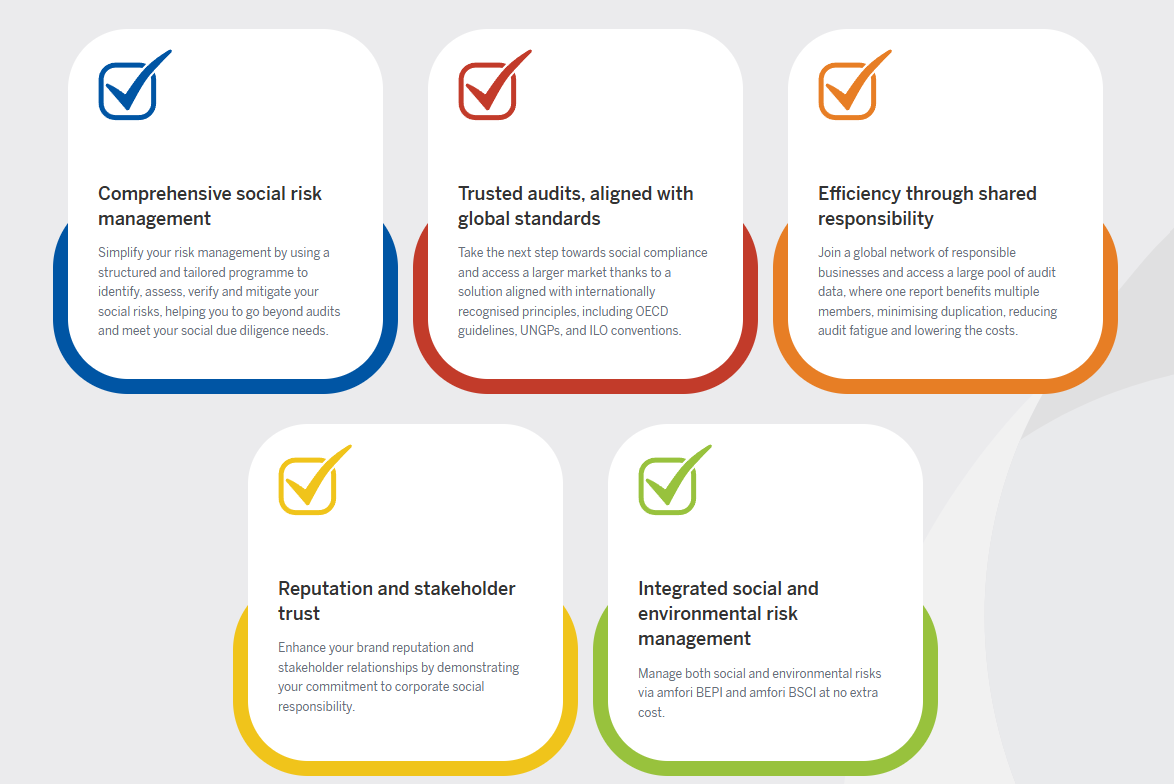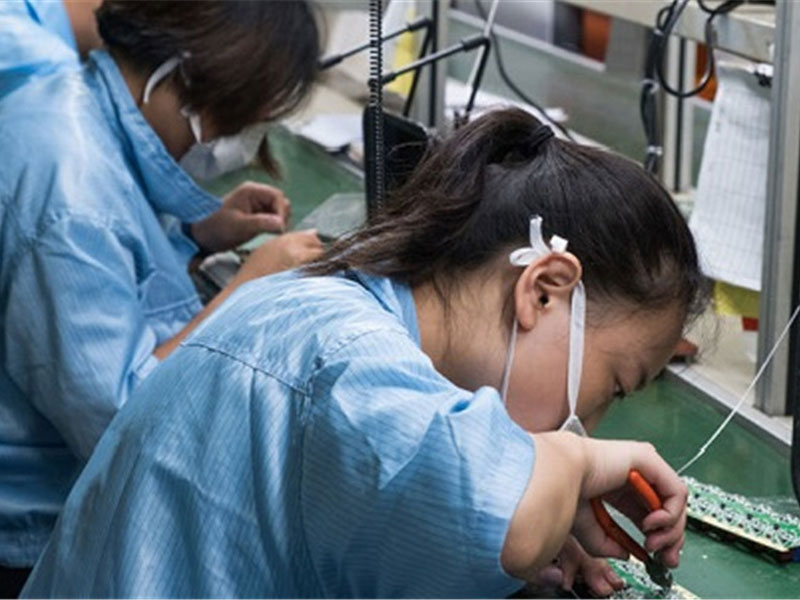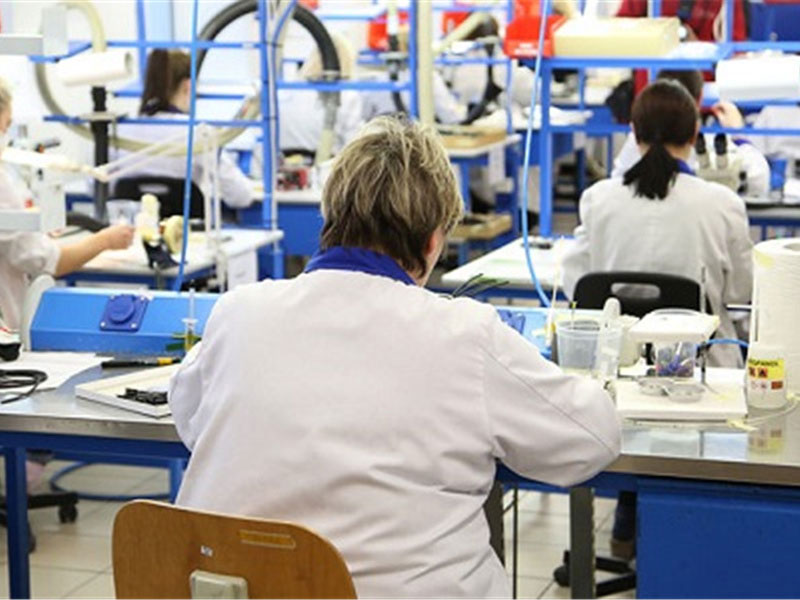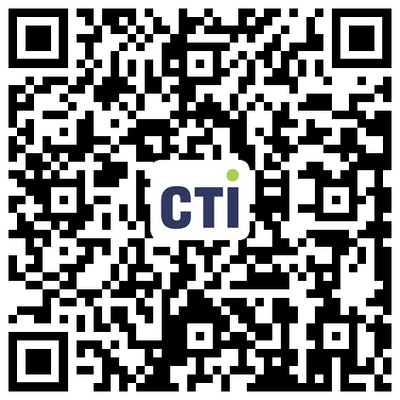-
 Overview
Overview
Centre Testing International Group Co., Ltd. (CTI) is a market leader in testing, inspection, certification, calibration, audit, training & technical services; building trust between governments, enterprises, and consumers.
-
 Sustainability
Sustainability
By building a full value chain ESG governance system covering the strategic decision-making level, management execution level and business operation level, it actively practices penetrating management of ESG risk and opportunities, empowering sustainable development across the industry chain.
-
 Our service
Our serviceCentre Testing International Co., Ltd. (CTI) is the pioneer and leader in the TIC Industry which provides one-stop solutions on testing, inspection, certification, calibration, audit, training & technical services.
-
By Industry
Our service capabilties cover the upstream and downstream of the supply chain including textile and apparel,toys,electronic appliances,medical health,food...andother industries.
-
 Environment
Environment
-
 Raw Material & Fuel Chemicals
Raw Material & Fuel Chemicals
-
 Textiles, Apparel, Footwear & Accessories
Textiles, Apparel, Footwear & Accessories
-
 Food & Agricultural Products
Food & Agricultural Products
-
 Cosmetics, Personal Care & Household Chemicals
Cosmetics, Personal Care & Household Chemicals
-
 Building Materials&Construction Engineering
Building Materials&Construction Engineering
-
 Electronic & Electrical Appliances
Electronic & Electrical Appliances
-
 Toys, Furniture & Home Decoration
Toys, Furniture & Home Decoration
-
 Industrial Equipment & Manufacturing
Industrial Equipment & Manufacturing
-
 Rail & Aviation
Rail & Aviation
-
 Automotive & Spare Parts
Automotive & Spare Parts
-
 Pharma and Medical Services
Pharma and Medical Services
-
 Maritime Vessel Compliance Testing
Maritime Vessel Compliance Testing
 By Industry
By IndustryOur service capabilties cover the upstream and downstream of the supply chain including textile and apparel,toys,electronic appliances,medical health,food...andother industries.
-
-
 Specialty
SpecialtyComprehensively guarantee quality and safety, promote compliance and innovation, demonstrate brand competitiveness, and achieve higher quality, healthier, safer, and greener sustainable development.
-
 Management
ManagementWe have established a clear governance structure in accordance with listing requirements and national regulations and policies to deal with internal and external challenges and achieve sustainable development.
-
 Information DisclosureWe are committed to establishing normal and effective two-way communication with shareholders and investors. We have established a complete information disclosure mechanism to convey information to shareholders in a timely manner.
Information DisclosureWe are committed to establishing normal and effective two-way communication with shareholders and investors. We have established a complete information disclosure mechanism to convey information to shareholders in a timely manner.
-
 Talents Policy
Talents PolicyEnsuring the basic rights and benefits of employees;
Providing professional skills training to promote employees’ growth;
Carrying out various kinds of activities to balance employees’ work and life.
-
 RecruitmentWelcome to join CTI family! We are providing a platform for you to show your talents and achieve your career aspiration.
RecruitmentWelcome to join CTI family! We are providing a platform for you to show your talents and achieve your career aspiration.

QUALITY & VALUE
amfori BSCI (Business Social Compliance Initiative), as a globally widely recognized supply chain social responsibility management system, is committed to promoting compliant operations and sustainable development of corporate supply chains. We provide professional amfori BSCI training services for amfori worldwide, with a team of senior lecturers who are familiar with international labor standards, supply chain management and sustainable development guidelines, and possess rich industry practical experience and professional teaching capabilities. We can offer customized training services to auditors, suppliers and factory parties engaged in various industries such as sporting goods, textile and apparel, and electronics manufacturing. The training content covers core knowledge including the interpretation of the amfori BSCI Code of Conduct, key assessment points of the 13 performance areas, and audit processes and skills. Enterprises and relevant personnel who have received systematic training can more accurately grasp the requirements of amfori BSCI standards, effectively improve the level of supply chain social responsibility management, and help enterprises establish a responsible brand image in the global market.

? Service Background
About the Global Trade Association (amfori)
amfori is a global business association, originally founded in Brussels, Belgium in 1977, formerly known as the "Foreign Trade Association (FTA)". In 2018, it was renamed amfori to focus on the needs of sustainable trade development. Initiated by European retailers and importers, the association has always been committed to helping enterprises optimize the environmental, social, and governance (ESG) performance of the entire supply chain. With comprehensive solutions, it supports sustainable development initiatives while helping enterprises alleviate supply chain disruptions. In addition, amfori's methodology can help enterprises assess and manage ESG compliance risks, covering key areas such as chemicals, climate, fair wages, and worker safety.
? About amfori BSCI
Launched in 2003, amfori BSCI (Business Social Compliance Initiative) helps identify and address social risks in the supply chain by introducing a globally recognized methodology system.
The amfori BSCI Code of Conduct outlines the principles and values that members and their suppliers commit to practicing in the supply chain. Each principle and value is based on internationally recognized standards such as the OECD Guidelines, UN Guiding Principles (UNGPs), and ILO Conventions, corresponding to 13 Performance Areas (PA). Auditors evaluate the auditee's performance based on these social performance areas through specific questions, general comments, and good practices where applicable.
Currently, the 13 performance areas of amfori BSCI include the following:
-
Social Management and Workplace Relations:
- PA 1: Social Management System and Cascade Effect
- PA 2: Worker Participation and Protection
- PA 3: Freedom of Association and Collective Bargaining Rights
- PA 4: Prohibition of Discrimination, Violence, or Harassment
-
Employee Well-being and Fair Practices:
- PA 5: Fair Remuneration
- PA 6: Reasonable Working Hours
- PA 7: Occupational Health and Safety
-
Protection of Vulnerable Workers:
- PA 8: Prohibition of Child Labor
- PA 9: Special Protection for Young Workers
- PA 10: Prohibition of Precarious Employment
- PA 11: Prohibition of Debt Bondage, Forced Labor, or Human Trafficking
-
Ethical Practices:
- PA 12: Environmental Protection
- PA 13: Ethical Business Conduct
? Service Advantages

Currently, amfori BSCI has the following main advantages:
- Risk Management: Identify, assess, verify, and mitigate social risks through structured and customized plans, simplify management, and meet social due diligence needs.
- Credible Auditing: Rely on solutions based on internationally recognized standards to help fulfill social responsibilities and expand markets.
- Efficiency Improvement: Join the global responsible business network, share audit data, reduce duplication of work, audit fatigue, and costs.
- Trust Building: Demonstrate corporate social responsibility commitments, enhance brand reputation, and consolidate stakeholder relationships.
- Comprehensive Risk Control: Manage social and environmental risks through amfori BSCI at no additional cost.
? Customer Groups
The customer groups of amfori BSCI mainly include various enterprises and their supply chain stakeholders. Brands, retailers, importers, etc., become members by paying fees and use its platform to manage supplier audits; manufacturing enterprises that OEM for international brands need to apply for relevant audits initiated by member customers; distributors and suppliers with revenue exceeding a certain share use its services to cope with supply chain risks; in addition, it also includes invited business partners, monitoring partners, etc., who carry out monitoring, capacity building and other activities through participating in the system.
? amfori BSCI Training Services
amfori BSCI (Business Social Compliance Initiative), as a globally recognized benchmark system for supply chain social responsibility management, has always taken regulating supply chain operations and promoting sustainable development as its core goals. Authorized by amfori, we provide professional amfori BSCI training services worldwide, relying on a team of lecturers composed of experts who specialize in international labor regulations, supply chain compliance management, and ESG practices. They not only have solid theoretical foundations but also have accumulated practical coaching experience in thousands of enterprises.
Our training services cover auditors, suppliers, and factory parties in multiple fields, and can customize courses according to the characteristics of different industries. The content includes practical modules such as the implementation path of the amfori BSCI Code of Conduct, case studies on the 13 performance areas, and risk identification and response strategies.
Enterprises and relevant personnel who have received systematic training can quickly transform standards into executable management plans, significantly enhance the ability to control social responsibility risks in the supply chain, and lay a solid foundation for enterprises to expand international cooperation and win market trust.
? Frequently Asked Questions
-
Q: How does the amfori BSCI rating system work?
A: The amfori BSCI audit consists of 81 questions. Auditors assess the compliance of the site through on-site observations, interviews, and document reviews. Each question is rated as "Yes", "No", "Partially Compliant", or "Not Applicable". The assessment results form an audit report with a grade from A to E. For more information on audit ratings, please refer to the amfori BSCI Audit Rating Overview Guide. -
Q: Can my suppliers undergo an amfori BSCI audit once a year?
A: The audit cycle for amfori BSCI is two years, starting with a "full audit", and follow-up audits may be required based on the audit results. If the audit grade is below "B" (i.e., C, D, or E), the supplier must conduct a follow-up audit within 2 to 12 months after the full audit; if the audit grade is above "C" (i.e., A or B), the supplier must undergo a full audit within two years at the latest. This two-year audit cycle aims to reduce audit fatigue and ensure continuous improvement. For a deeper understanding of the audit methodology, please refer to Part II of the amfori BSCI System Manual. -
Q: What is the difference between a full audit and a follow-up audit?
A: A follow-up audit is an interim audit conducted when the full audit grade is below "B". In this case, suppliers have the opportunity to provide evidence of improvement in specific areas. In such audits, auditors will not ask all 81 questions but only focus on the areas identified for improvement in the latest audit report. amfori strongly recommends that follow-up audits be conducted within 2 to 3 months after the full audit, which provides sufficient time for the auditee to demonstrate specific improvements in the areas requiring enhancement. In addition, auditors must conduct "minimum due diligence" on employee well-being and fair practices (Performance Areas 5, 6, 7). Follow-up audits help reduce audit fatigue and ensure continuous improvement. -
Q: Is amfori BSCI a certification?
A: No, amfori BSCI is not a certification. As a membership-based association, amfori is committed to supporting its members in conducting ESG due diligence through a risk-based approach and continuous improvement mechanisms. We do not issue "pass" or "fail" conclusions to suppliers but cooperate with members to promote supplier improvement and their responsible business practices. Only our members and their audited suppliers can access and view complete audit reports on the amfori Sustainability Platform to ensure transparency and continuous progress.





























 粵公網(wǎng)安備 44030602000441號
粵公網(wǎng)安備 44030602000441號